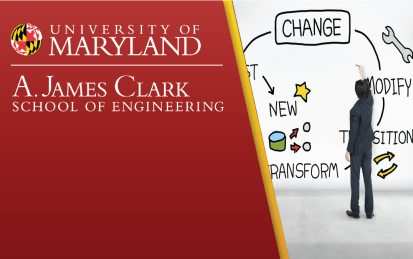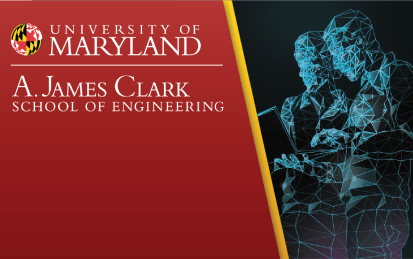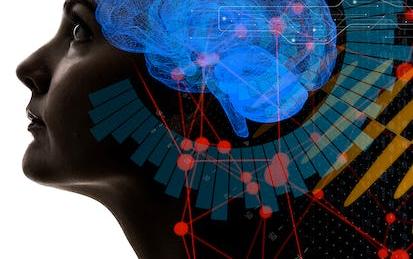

Our Courses

Building a Lean Startup
Based on Eric Ries's influential book The Lean Startup , this course will bring your business idea to life with the help of time-tested tools and strategies employed by some of the world’s most successful startups.
-
Course by

-
 Self Paced
Self Paced
-
 18
18
-
 English
English

Cultivating a Caring and Benevolent Environment in Education
This course invites you to learn in an experiential, empowering and even magical way how to promote a caring and benevolent environment in education and in other contexts. Upon its completion, you will have gained new insights and practical tools to change both your personal and professional environments. Curious? Log into the course.
-
Course by

-
 Self Paced
Self Paced
-
 English
English

Lean Six Sigma: Green Belt Certification Project
Implement a Lean Six Sigma improvement project along with the DMAIC phases, from its identification to the evaluation of its result, to earn the TUM Lean Six Sigma Green Belt certification.
-
Course by

-
 Self Paced
Self Paced
-
 English
English

Introduction to Human-Robot Interaction
Discover the basic concepts of human-robot interaction and how robots work. Learn how to design a human-robot interaction and different ways in which users can interact with robots.
-
Course by

-
 Self Paced
Self Paced
-
 English
English

Design of mound breakwaters for feasibility studies. Cubipod Manual 2016
-
Course by

-
 Self Paced
Self Paced
-
 English
English

Program Management Fundamentals - Governing with Excellence to Drive Strategic Change
-
Course by

-
 Self Paced
Self Paced
-
 English
English

The Program Manager - Applying Power Skills and Digital Enablers to Create Continual Change
-
Course by

-
 Self Paced
Self Paced
-
 English
English

Transmission electron microscopy for materials science
Learn about the fundamentals of transmission electron microscopy in materials sciences: you will be able to understand papers where TEM has been used and have the necessary theoretical basis for taking a practical training on the TEM. This course provides a comprehensive introduction to transmission electron microscopy (TEM) in the field of materials science. For an instrument operated by a single user, modern TEM provides an analytical platform with unsurpassed versatility, giving access to structural and chemical information from the micrometer to the sub-angstrom scale.
-
Course by

-
 Self Paced
Self Paced
-
 46 hours
46 hours
-
 English
English

Today's Music Industry
This course provides an engaging and methodical insight into the past and present cultural and commercial music industry developments, directions, and trends. It will equip the students with the knowledge and skills necessary to appreciate, understand and more productively participate in today’s music industry field.
-
Course by

-
 Self Paced
Self Paced
-
 15 hours
15 hours
-
 English
English

Introduction to Classical Music
Using a simple and enjoyable teaching style, this course introduces the novice listener to the wonders of classical music, from Bach fugues to Mozart symphonies to Puccini operas.
-
Course by

-
 Self Paced
Self Paced
-
 66 hours
66 hours
-
 English
English

Bugs 101: Insect-Human Interactions
Of all the animals on earth, which are the strongest for their size? What about the fastest? Who were the first animals to evolve flight? Insects take all of these titles and more! As the most abundant animals on the planet, insects and other arthropods affect our lives in so many ways. From beneficial interactions like pollination and biological pest control, to the transmission of life threatening diseases; this course will teach you about the big ways that these little arthropods impact our lives.
-
Course by

-
 Self Paced
Self Paced
-
 49 hours
49 hours
-
 English
English

The Addicted Brain
This is a course about addiction to drugs and other behaviors. It will describe what happens in the brain and how this information helps us deal with and overcome addiction. It will also discuss other topics, such as government policy and our vulnerability to take drugs.
-
Course by

-
 Self Paced
Self Paced
-
 22 hours
22 hours
-
 English
English

Fundamentals of Rehearsing Music Ensembles
Learn and practice the basic principles of running an effective music ensemble rehearsal. Techniques and strategies are applicable to a variety of ensembles, including bands, orchestras, choirs, and chamber groups.
-
Course by

-
 Self Paced
Self Paced
-
 22 hours
22 hours
-
 English
English

Large Marine Ecosystems: Assessment and Management
Focusing on the Large Marine Ecosystems (LMEs) of the world, this course will introduce the concept and practice of ecosystem-based management. LMEs occupy areas of coastal ocean at least 200 000 km² or greater in size. These coastal waters produce 12.6 trillion USD in ecosystem goods and services annually and are vitally important for billions of people around the globe. Because LMEs are bounded by ocean features and are globally linked, management of human activities needs to occur in an integrated fashion across political boundaries and economic sectors (e.g.
-
Course by

-
 Self Paced
Self Paced
-
 25 hours
25 hours
-
 English
English

Getting Started With Music Theory
This course is a brief introduction to the elements of music theory for those with little or no music theory experience. We will explore pitch, rhythm, meter, notation, scales, keys, key signatures, meter signatures, triads, seventh chords, and basic harmony.
-
Course by

-
 Self Paced
Self Paced
-
 13 hours
13 hours
-
 English
English

Miracles of Human Language: An Introduction to Linguistics
Everywhere, every day, everybody uses language. There is no human society, no matter how small or how isolated, which does not employ a language that is rich and diverse. This course introduces you to linguistics, featuring interviews with well-known linguists and with speakers of many different languages. Join us to explore the miracles of human language! The Miracles of Human Language introduces you to the many-faceted study of languages, which has amazed humans since the beginning of history.
-
Course by

-
 Self Paced
Self Paced
-
 23 hours
23 hours
-
 English
English

Biohacking Your Brain's Health
With deteriorating health, particularly brain health, occurring at a global level, this course introduces you to methods for maximizing your brain's fitness through nutrition, exercise, meditation, and sleep. We'll debunk popular myths about prescribed practices for overall health and then uncover studies from the last few decades revealing practical routines and interventions that are proven to help improve the brain. You'll also get a glimpse at the brain's structure and common brain functions, as well as a "prescription" each week of tips for improving your brain's health.
-
Course by

-
 Self Paced
Self Paced
-
 14 hours
14 hours
-
 English
English

Approaching Music Theory: Melodic Forms and Simple Harmony
This course is about how music works. It is about the relationship between the technical and aesthetic details of music. It is also about how developing a meaningful theoretical vocabulary can help you think and talk about musical style, and how learning that vocabulary can expand your appreciation for music. In this course you will learn music theory not by looking at theory itself, but by listening to, looking at, and—yes!—writing your own musical examples.
-
Course by

-
 Self Paced
Self Paced
-
 22 hours
22 hours
-
 English
English

Operational Research for Humanitarians
Evidence is central to good decision-making both in the humanitarian sector and beyond. Every day, a vast amount of evidence is generated that is relevant to humanitarian actors, much of it through research by academics and practitioners. This evidence can be incredibly valuable. It can help us better understand a situation and make humanitarian action more effective and accountable.
-
Course by

-
 Self Paced
Self Paced
-
 17 hours
17 hours
-
 English
English

How to Write and Publish a Scientific Paper (Project-Centered Course)
What you will achieve: In this project-based course, you will outline a complete scientific paper, choose an appropriate journal to which you'll submit the finished paper for publication, and prepare a checklist that will allow you to independently judge whether your paper is ready to submit. What you'll need to get started: This course is designed for students who have previous experience with academic research - you should be eager to adapt our writing and publishing advice to an existing personal project.
-
Course by

-
 Self Paced
Self Paced
-
 13 hours
13 hours
-
 English
English

Music and Social Action
What is a musician’s response to the condition of the world? Do musicians have an obligation and an opportunity to serve the needs of the world with their musicianship? At a time of crisis for the classical music profession, with a changing commercial landscape, a shrinking audience base, and a contraction in the number of professional orchestras, how does a young musician construct a career today?
-
Course by

-
 Self Paced
Self Paced
-
 26 hours
26 hours
-
 English
English

The Technology of Music Production
Learn about the music production process—including recording, editing, and mixing—and the tools available to you to create contemporary music on your computer. With the recent introduction of high-quality-low-cost software and hardware, the tools of music production are now available to the masses. Albums are made in bedrooms as well as studios. On the surface this is liberating. Anyone can make an album for the low cost of a couple pieces of gear and a software package. But, if you dig deeper, you will find that it is not so easy.
-
Course by

-
 Self Paced
Self Paced
-
 18 hours
18 hours
-
 English
English

Digital Signal Processing 1: Basic Concepts and Algorithms
Digital Signal Processing is the branch of engineering that, in the space of just a few decades, has enabled unprecedented levels of interpersonal communication and of on-demand entertainment. By reworking the principles of electronics, telecommunication and computer science into a unifying paradigm, DSP is a the heart of the digital revolution that brought us CDs, DVDs, MP3 players, mobile phones and countless other devices. In this series of four courses, you will learn the fundamentals of Digital Signal Processing from the ground up.
-
Course by

-
 Self Paced
Self Paced
-
 29 hours
29 hours
-
 English
English





